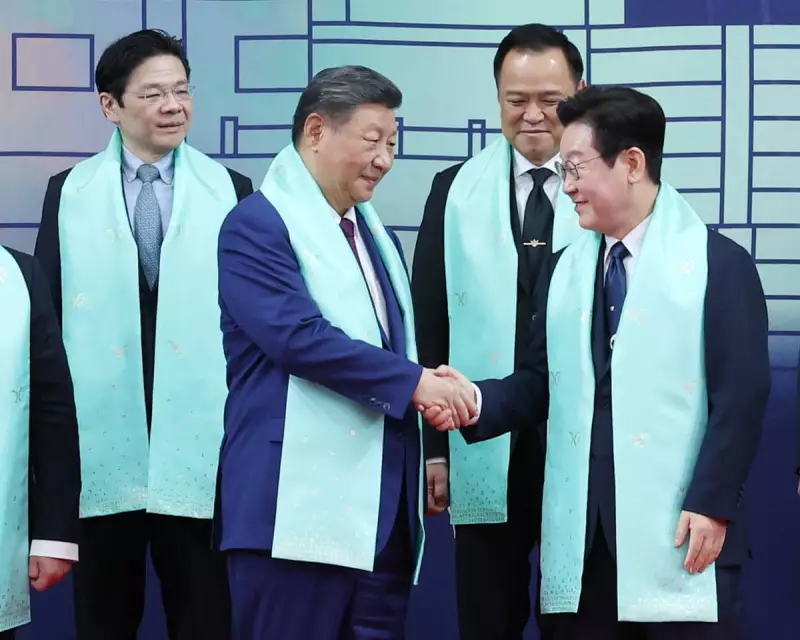
In a striking display of diplomatic prowess, Chinese President Xi Jinping dominated the recent APEC summit in South Korea, using the global stage to signal Beijing's renewed commitment to international engagement. The high-profile appearance marked a significant shift from China's recent period of relative isolation.
The Diplomatic Whirlwind
President Xi's schedule resembled that of a political rock star, cramming an astonishing sixteen meetings with world leaders into just two days. This diplomatic marathon included crucial face-to-face discussions with counterparts from the United States, Japan, and South Korea, underscoring China's determination to reassert its global influence.
Substance Over Style
Beyond the photo opportunities and handshakes, analysts noted several key takeaways from Xi's performance:
- Economic Reassurance: Xi consistently positioned China as a stable partner for international trade and investment, seeking to counter narratives of economic uncertainty
- Strategic Messaging: The Chinese leader carefully balanced cooperation with firmness, particularly on sensitive issues like Taiwan and South China Sea tensions
- Bilateral Breakthroughs: Several meetings yielded concrete agreements, though significant differences remain on core geopolitical issues
The US-China Dynamic
The highly anticipated meeting between Xi and his American counterpart revealed both the limitations and necessities of great power diplomacy. While neither side emerged with dramatic concessions, the mere fact of the engagement itself was widely interpreted as a positive signal for stabilising relations.
Regional Implications
Xi's extensive outreach to Asian neighbours, particularly Japan and South Korea, demonstrated China's determination to counter US influence in the region. The diplomatic offensive comes amid ongoing tensions over security arrangements and economic competition.
A New Chapter in Chinese Diplomacy?
Many observers are questioning whether the APEC summit represents a genuine turning point in China's foreign policy approach. After years of what some analysts termed "wolf warrior diplomacy" and pandemic-induced isolation, Xi's charm offensive suggests a recalibration of Beijing's international strategy.
The ultimate test, however, will be whether this renewed engagement translates into tangible cooperation on global challenges from climate change to regional security. As world leaders depart South Korea, the international community watches closely to see if Xi's diplomatic dance marks a lasting shift or merely a temporary performance.





